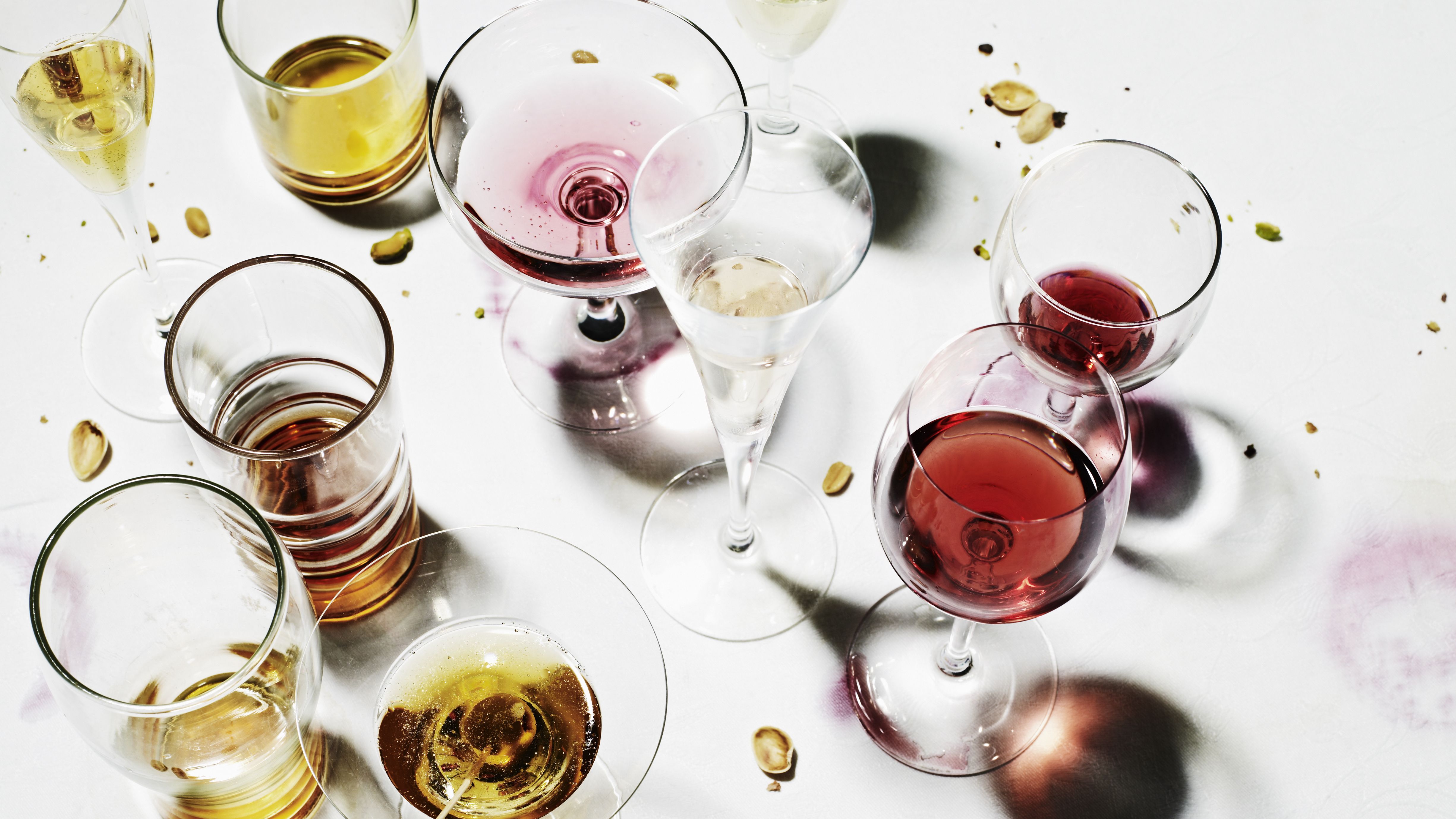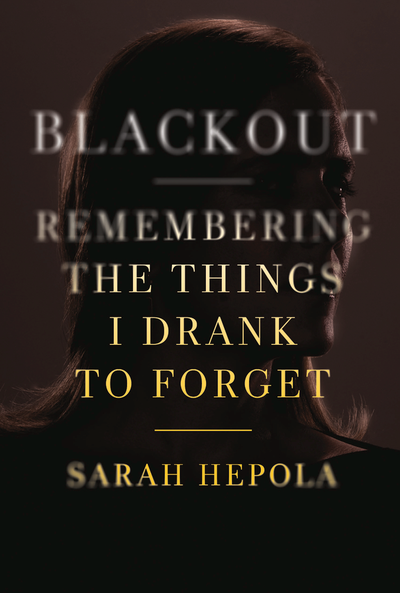"I Always Thought Someone Was Going to Stop Me": Writer Sarah Hepola Opens Up About Alcoholism in Her New Memoir
An exclusive Q&A with the author of Blackout, on shelves now.


Five years ago this month, Sarah Hepola awoke to a scene that looked like just any other Sunday morning. She was in her own bed, her cat snuggled up beside her and the sun shining in. But she couldn't remember how she'd gotten there.
At a wedding the night before, she had first traded red wine for white, and eventually white wine for a blackout. Maybe it was the mundanity of the whole thing, but something set that morning apart from every other breaking point she thought she'd reached—she never drank again.
On the eve of the publication of her new memoir Blackout, Hepola sat down with us to talk about her path to alcoholism and back, and why readers who've never touched a drop can still relate to her story.
How terrifying was it to write this thing? Did you weigh the decision for a long time?
"It took me like four years to write the book, and in that four years there were terrible spikes of terror. For me, it was less around talking about my life, which is something I had already been doing for a long time as a writer. It was more about taking everyone along with me—my family and friends and people I'd dated. It's funny because some people will say like, 'Well, the good thing about your memoir is it's not a train-wreck memoir,' in terms of these catastrophic, incredible things happening. At least I keep all my arms."
Right—you don't have to be a train wreck or need an intervention in the traditional sense–or even drink at all–to need a reckoning of some kind in your life.
"I always thought someone was going to stop me. I always thought there was going to be an intervention—whether a medical intervention, a legal intervention, or a personal intervention. One of the terrible gifts that I guess I had is that I was able to manage it that whole time—I kept my job, I kept my apartment. But ultimately I realized, I might be able to keep doing this...but I don't want to. I called my mom that night, and getting my mom involved was a last resort, because I had protected her so much. I knew that once I told her that that's what was going on, I couldn't walk back. And then telling my mom started to break down my denial that I was only hurting myself. Because that's what I always said: 'Who cares if I drink or not? I don't have kids, I don't have a husband. I'm not hurting anybody.'"
Get exclusive access to fashion and beauty trends, hot-off-the-press celebrity news, and more.
It's amazing, in the book, how your friends were both willing to be honest with you and to stick with you through the hard parts.
"I think with women, we're so accustomed to being like, 'You are awesome. You are great. Everything you do is perfect, don't listen to the world.' You're always trying to lift each other up, but where's the part that's like, 'You know, you could do better on this'?"

It would be easy to call this a memoir of alcoholism, but it's clearly about so much more than that. So much of it is about trying to keep up with the guys in every area of your life—whether it's going shot for shot at the bar, or sleeping around casually, or being more selfish in your career.
"'Nature insists on some double standards.' I totally understand the woman who wants to stand toe-to-toe and knock back those drinks with the guys, because it is a way for us to prove our value and our mettle—'Don't dismiss me' is what's underneath that. But when I tried to drink like men and when I tried to stand in that world, it just wasn't the same. We are made differently. I don't know if I'm going to get pushback for that or not. It's hard for me to believe that I would, because it's got science behind it."
Is it hard to be in bars around people who are drinking?
"I wanted to be the cool person who was like, 'Y'all, I don't mind! It's cool, I love it here!' but I would go and I felt estranged, and the smell of beer still has a Proustian effect on me, so I had to do it with great caution. If we're all sitting around and talking, and talking is the central activity, that's no big deal. There's something about three or four drinks—like right after that, they're getting on a train and I'm not boarding. And they're gonna think things are funny when they're not that funny, and they're gonna think that they're very entertaining when they're not. I'm not on the ride."
Dating without drinking must be much the same.
"So much of dating is about knee-jerk reactions. People don't see a full you, they just see a data set. And for me, when they see 'Doesn't drink,' it's like, 'Ugh, I don't want to deal with that.' Just because this person doesn't drink, why would you not want to date them or not want to hang out with them? I wrote this piece for Cosmo about how I used to hate women who didn't drink. That sucks about me, but I had to put that out there. So I didn't like women who didn't drink—and then I became one. And I had to figure out how to accept myself, but also how wrongheaded this really large stereotype that I had held onto was."
A lot of people use it as a shorthand for a certain set of personality traits.
"Yeah, the cool chick—she cusses and she runs with the boys and she's strong and she's funny—and those were all the things I wanted to be! And they're all the things that I still am...I just don't drink."
I also think a lot of people feel the need to reaffirm their own choices by putting down anyone who makes the opposite choice. Not just drinking, but whether or not to start a family, or your career choice or where you choose to live.
"I was listening to the Marc Maron interview with Barack Obama and they were talking about what it is to meet people who think differently from you and how easy it is to dismiss them and put these barriers up so you don't listen to each other, but the more interesting thing to do is to not go to that identity politics place and to try to find the places where your stories do fit and what you have in common. It's challenging, but it is a form of evolution to be able to see past those things."
Blackout is available now—buy a copy here.
